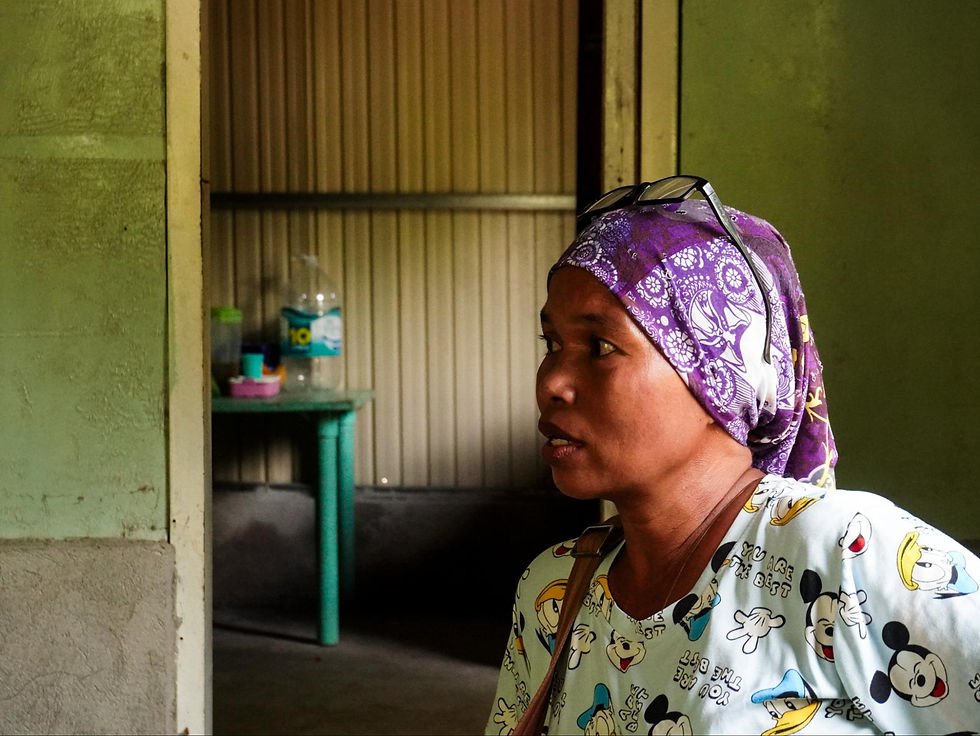Canada, MEDA Philippines, and PPSA support local cacao industry through RIISA Project
- Sep 26, 2023
- 3 min read
Updated: Oct 5, 2024
Chocolate, a beloved food and ingredient, is made from cacao. Lately, the Philippine Cacao Industry has been making waves in both local and international markets, owing to the growing gap between supply and demand for cocoa beans. This is primarily due to its strategic location, good climatic conditions, and favorable soil, which provide ideal conditions for cacao cultivation. The country's cacao production has been steadily increasing, with Davao being its top producer.

However, changing weather conditions, pests and diseases, low productivity, aging trees, high mortality of planting materials, competing crops and unsustainable cacao farms are just some of the challenges hindering the growth of the industry. Moreover, the lack of knowledge among cacao growers only adds to the widening gap between supply and demand.
Recognizing that concerted efforts and investments are needed to address these issues and propel the Philippine cacao industry to thrive in the global market, the Canadian Government through Global Affairs Canada, Mennonite Economic Development Associates (MEDA) Philippines, and the Philippines Partnership for Sustainable Agriculture (PPSA) committed to support bridging these gaps through the five-year Resilience and Inclusion through Investment for Sustainable Agrikultura (RIISA) Project.

The Embassy of Canada in Manila, MEDA PH, and PPSA partner for the RIISA Project's Strategic Learning Agenda (SLA). In picture from left: Grow Asia Head of Partnerships Amy Melissa Chua, The Embassy of Canada in Manila International Assistance Officer Ivy Lecitona, MEDA PH Country Director Catherine Sobrevega, Embassy of Canada in Manila Head of Cooperation John Lok, and PPSA Country Director Angel Bautista during the signing of a memorandum of understanding between MEDA PH and PPSA.
Partners for Growth
Now on its third year, the RIISA Project is seeking to build more gender-inclusive, sustainable livelihoods, and profitable agri-businesses by directly supporting 5,400 smallholder farmers (40% are women) and indirectly supporting 35,000 women and men small-scale farmers through the cooperatives, associations, public institutions, and small and medium enterprises (SMEs) in the cacao sector.
The project is also expected to help strengthen the cacao sector and create more sustainable livelihoods for Mindanao women and men farmers by engaging and establishing partnerships, and providing technical support for diverse actors in the agri-food market system.

“I saw how the partners, the private sector and cooperatives are working together in the cacao sector. We are now in our second year of working with our partners. We will be working with 15 private sector, 15 cooperatives, and the regional and national cacao councils. We’re excited to see what can be done together,” said MEDA Philippines Country Director Catherine Sobrevega.
MEDA Philippines is an international economic development organization that creates business solutions to poverty. One of the main components of the RIISA Project is the Strategic Learning Agenda (SLA) which aims to promote the best Environmental Social Governance (ESG) practices in the cacao market system. This will help improve the current business practices of actors in the cacao industry.
“Strategic Learning is an important component of the RIISA Project. In other MEDA Projects, we usually have it at the end. I’m very happy that for this one, we are having it even at the onset of the project. We’re looking at what we are doing, what have been the best lessons, and how we can make sure that we are using these learnings to help the sector,” said Sobrevega.

MEDA PH and PPSA partner for the RIISA Project's Strategic Learning Agenda (SLA). From left: PPSA Country Director Angel Bautista, MEDA PH Country Director Catherine Sobrevega, and Grow Asia Head of Partnerships sign a memorandum of agreement.
Through stakeholder engagements, the SLA seeks to have a clearer understanding of the challenges that impede the equitable growth in the Philippine Cacao Sector. The project will also work on documenting best practices for integration of G-ESG in the cacao businesses and increase the awareness of relevant stakeholder groups on effective G-ESG business integration strategies. All these are expected to help identify the ways on how the RIISA Project could further the discourse and promotion of Gender Lens Investing (GLI) with various organizations in the cacao value chain.
MEDA Philippines, with the support from the government of Canada, is partnering with PPSA for the implementation of the SLA. PPSA is a multi-stakeholder platform for sustainable and inclusive food systems initiated by Grow Asia. Believing in the power of partnerships and knowledge exchange in shaping better lives for Filipino farmers, PPSA will support the RIISA Project and facilitate the development of the strategic learning activities and knowledge products, and help strengthen the cacao advisory council through capacity enhancement initiatives.

“With knowledge and learning as one of the main thrusts of PPSA, we didn’t think twice about this project. Hopefully, through this project we can help increase the adoption of inclusive value chain practices in cacao. We are excited to work with like-minded organizations who have the same passion to support smallholder farmers through multi-stakeholder collaborations,” said Grow Asia Head of Partnerships Amy Melissa Chua.




Comments